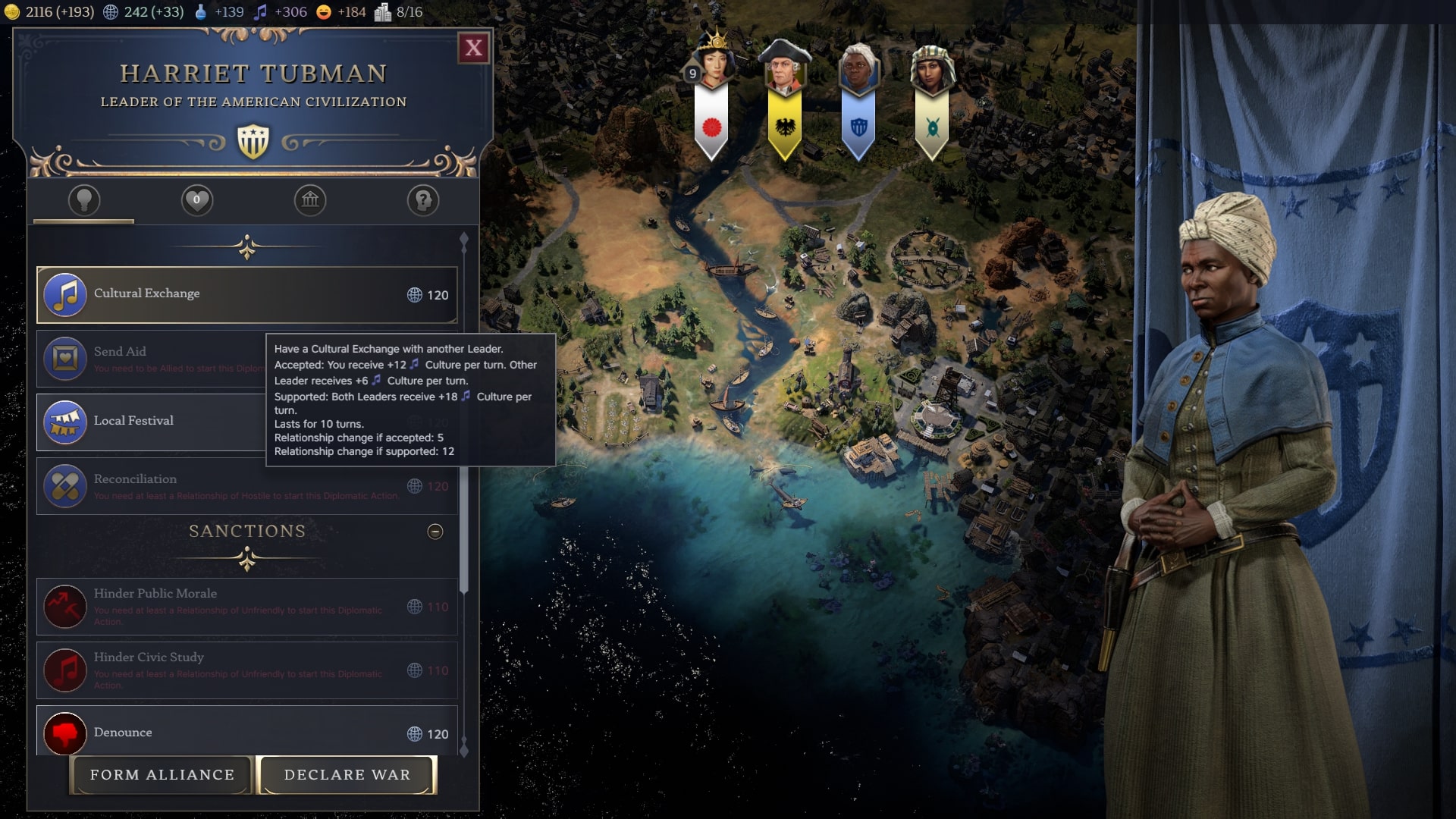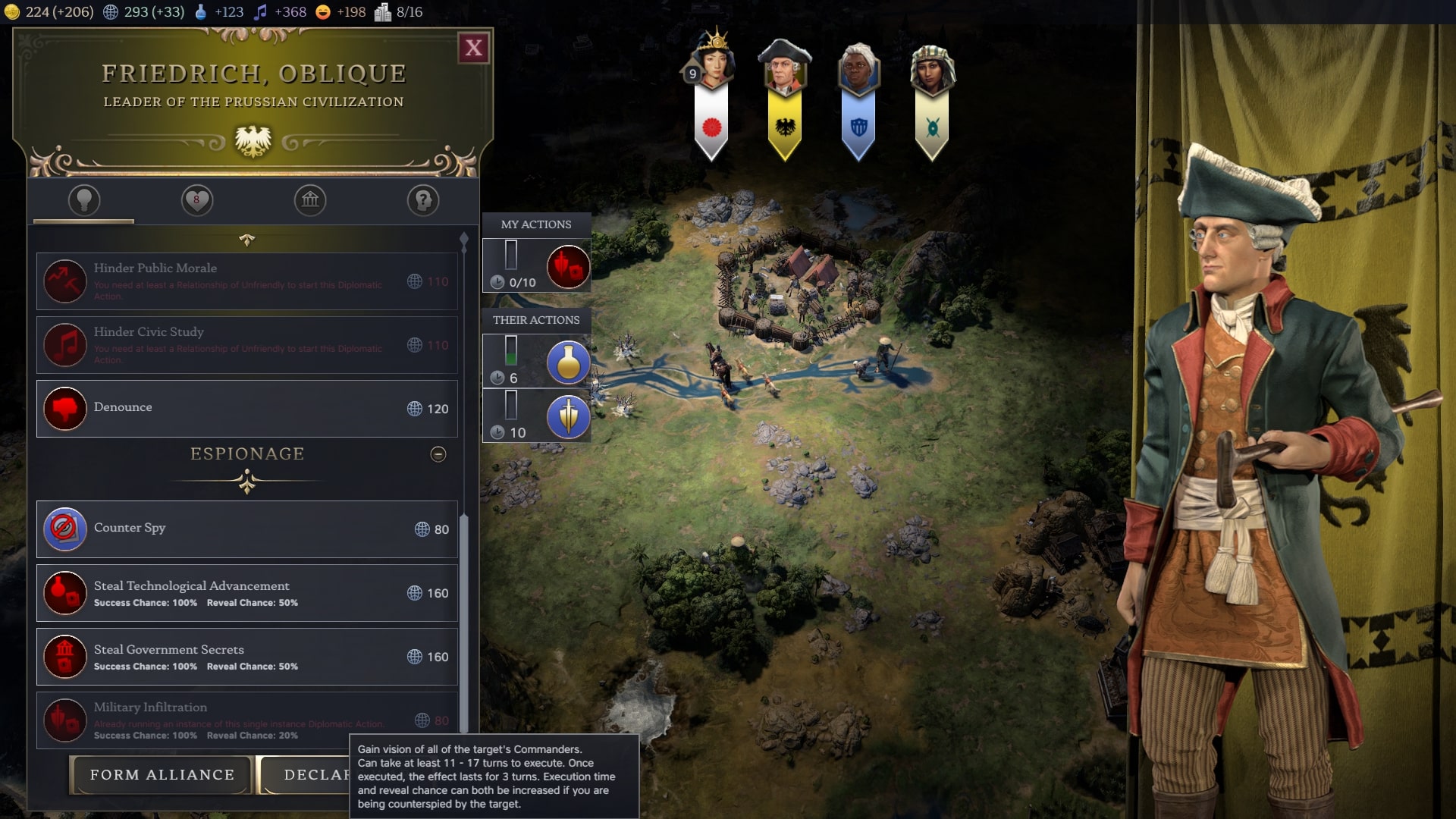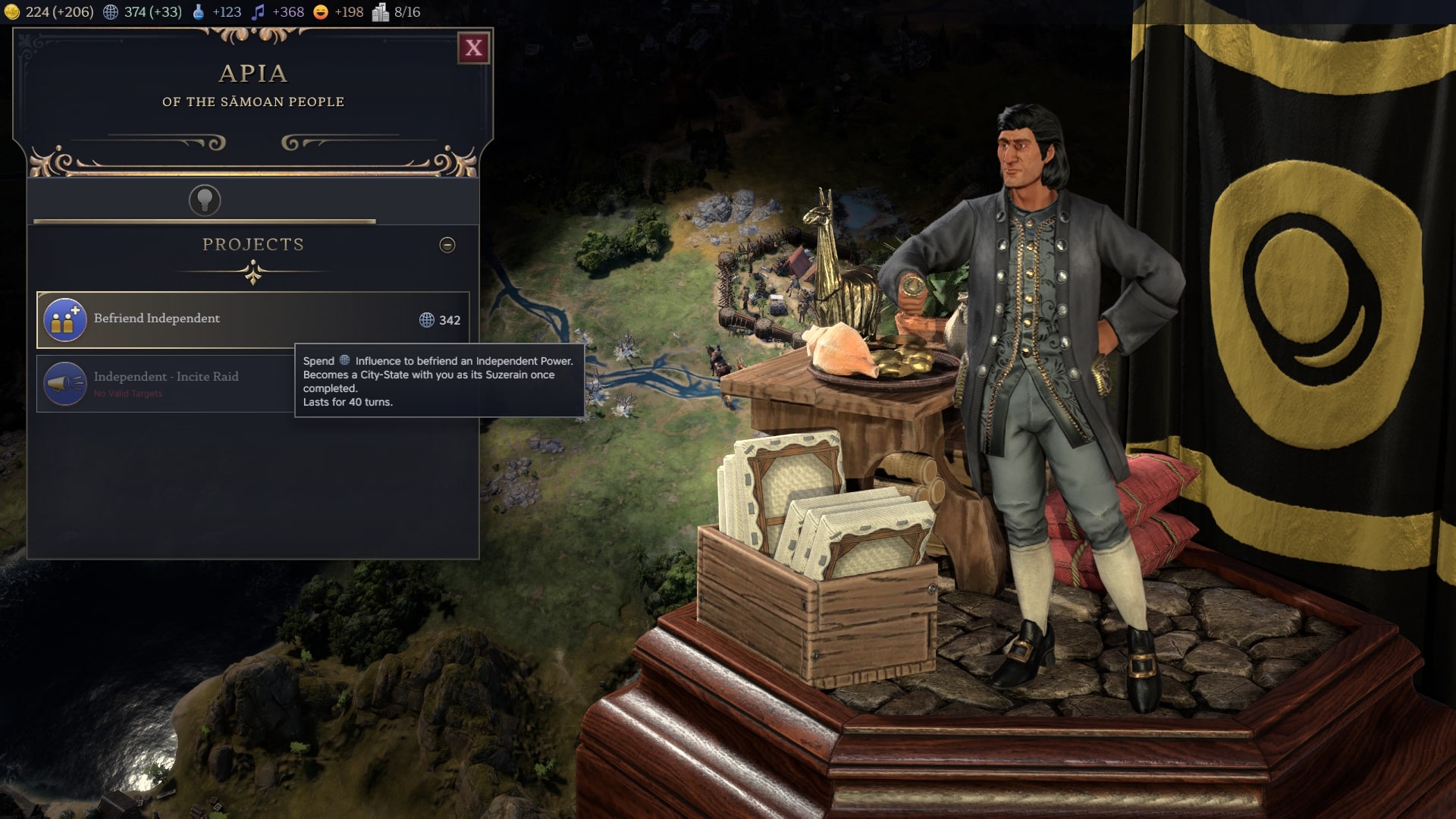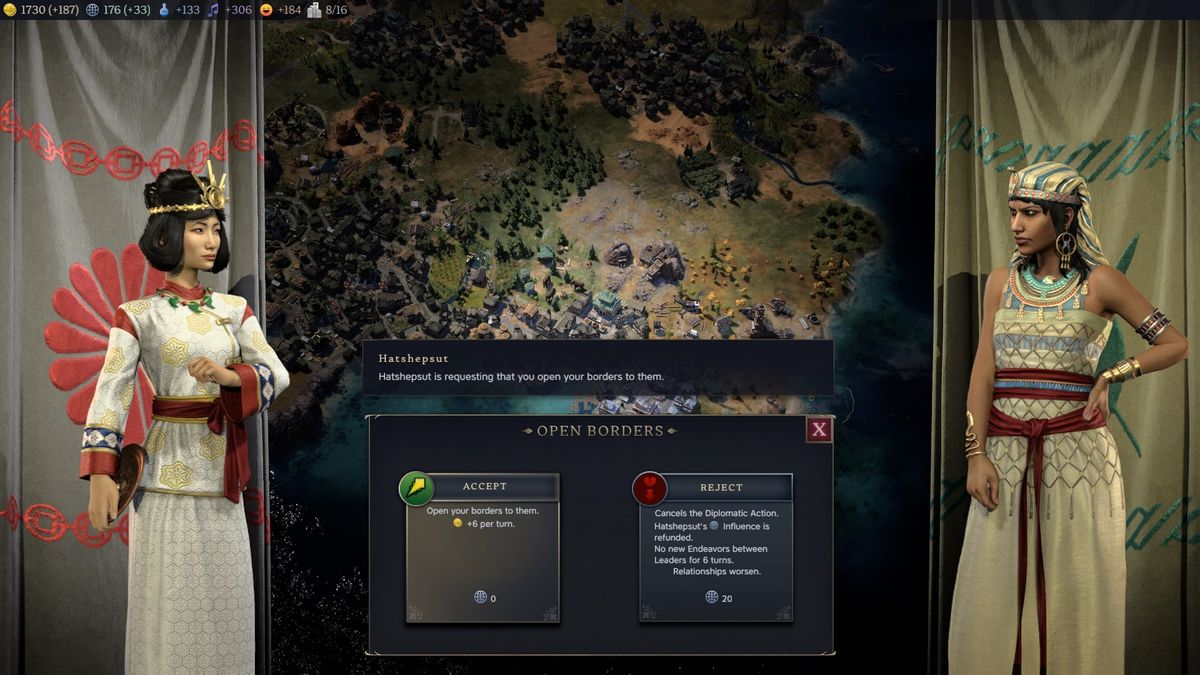Civilization 7 diplomacy works a little differently compared to previous entries in the series. In an effort to cut down on micromanagement and streamline the systems, Firaxis has introduced a new type of currency, Influence, and has also changed the interface with which you befriend or reject other nations.
Once you meet another Civilization 7 leader, you’ll be able to enter the diplomacy screen by selecting the leader portraits in the top right of the screen, which allows you to see everything about your relationship with them. On this pop-up, you’ll find possible actions to take that might improve or damage your relations. You can perform these actions by spending a new type of currency called Influence, so let’s take a closer look at diplomacy in Civilization 7.
If you’re looking for some more general pointers, then check out our Civilization 7 tips and tricks to build your empire.
How to use Influence in Civilization 7 diplomacy

Influence is a new yield introduced in Civilization 7. Similar to Gold, you gain Influence at the end of each turn, and can use your policies, production, and research to increase the amount of you gain. Influence can then be spent on certain actions in the diplomacy screen. There are four kinds of diplomacy actions you can take:
- Endeavors: Mutually beneficial actions between both nations, such as providing aid or bolstering their armies with support
- Sanctions: Negative actions against the leader’s empire, like denouncing them or reducing happiness among their population
- Treaties: Agreements between both nations, such as opening borders or improving trade relations
- Espionage: Sabotaging another nation with a chance of being caught. If caught, you’ll suffer a small penalty to Influence and damage your relationship with the targeted nation
You’ll need more than just the right amount of Influence points though, because the other nation must accept it if you want it to go ahead. Actioning an Endeavor will give them a chance to respond, either by supporting it, accepting it, or rejecting it. Similarly, Sanctions also have the option to Accept or Reject. Supporting a diplomatic action results in major benefits for both nations at the cost of Influence. Choosing Accept is free but results in smaller benefits. If the target nation chooses Reject, they must spend Influence to cancel it.
Because of how dramatic Influence can change your relationships with other nations, we recommend not using your Influence all at once. You’ll want to keep some banked in case you need it unexpectedly. For example, Influence is incredibly useful for War Support, so you’ll be better off having a lot of Influence saved up just before you go to war.
How to use Espionage in Civilization 7 diplomacy

Espionage works a little differently to the other diplomatic actions, with the action taking a random number of turns to complete at the cost of Influence. At the end, you’ll receive a reward if the mission was completed successfully. Once you’ve initiated an Espionage action, the target nation isn’t informed. However, there is a chance that your Espionage actions can be revealed to them later on. In this case, you’ll receive a penalty to the amount of Influence you receive per turn, and your relationship with this empire will be damaged.
Every player also has the ability to use the Counterspy against another leader. This will cause the average time for their Espionage actions to triple, and decrease how successful the mission is for them. Of course, if engaging in Espionage, keep your eye carefully on your own Influence. If the number appears to be dropping rapidly, it could mean another player is using Counterspy.
How to befriend Independent Powers in Civilization 7 diplomacy

While each Civ 7 game has you playing diplomacy with other major leaders, there are also several smaller nations for you to befriend or defeat called Independent Powers. These powers typically consist of one City State and several units wandering the map. Independent Powers can either be Friendly or Hostile to you, but you can take control of their city regardless of their opinion.
To befriend an Independent Power, approach their city and choose the option to “Befriend Independent”. This will require spending Influence to kickstart the process. Once this process begins, you’ll need to wait a number of turns until you become a Suzerain of that City State and can gain benefits from it. For example, you’ll be able to set up a Civilization 7 trade route between this City State and your empire.
Beware of other civs that may also want to befriend an Independent Power. A City State can have multiple players claiming suzerain at the same time, but only one nation can gain the title. You can spend Influence to speed up the process if you want to outpace other leaders.
© GamesRadar+. Not to be reproduced without permission.










Leave a Reply